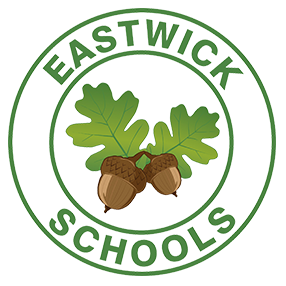Phonics and Reading
Phonics
We use the Little Wandle Letters and Sounds Revised programme to teach phonics. The structured programme builds steadily on phonic learning, ensuring progression and consistency from the beginning of the Reception year through to the end of Key Stage 1. Pictures and catchphrases help the children to recall the graphemes (letters) and their corresponding phoneme (sound), a learned mantra supports the correct formation of each letter shape and daily phonics lessons allow the children to practise blending to read and segmenting to write every day.
For those pupils who require further support as they transition to and continue through Key Stage Two, we use the same teaching resources and techniques in catch up lessons from the programme to consolidate learning.
More information can be found on the Little Wandle website.
Little Wandle Programme Overview - Reception and Year 1
How we teach phonics
In Reception and Year 1, children follow the progression within the Little Wandle Letters and Sounds Revised programme. Phonics is taught daily and there is a review session on a Friday.
Phonics starts in Reception in week 2, to ensure the children make a strong start. By the end of Reception, children will have been taught up to the end of phase 4. By the end of Year 1, children will have been taught up to the end of phase 5.
Reception lessons start at 10 minutes, with daily additional oral blending – increasing to up to 30 minutes as soon as possible. Year 1 lessons are up to 30 minutes long.
In Year 2 to Year 6 children who have not met the thresholds for phonic achievement will receive intervention. This may be as whole class, group or individual and follows Little Wandle guidance. Alongside the keep up and catch up intervention for Reception and Year 1, the Little Wandle Rapid Catch-up intervention can be used for children in Year 2 and above who need more support with mastering the phonic code and becoming fluent readers.
How we assess phonic knowledge
In daily phonics lessons, teachers use their assessment to target children who may need additional practise with the learning on the same day, as far as possible. If children are identified as in danger of falling behind, catch up sessions are put in place following the Little Wandle Letters and Sounds Revised programme.
In Reception and Year 1, the children are assessed at the end of every half term using the Little Wandle Letters and Sounds Revised assessments.
The children in Year 1 do the statutory Phonics Screening Check (PSC) in the summer term, which involves reading a set of words to assess how well they can decode.
Children who do not meet the standard of the PSC in Year 1 will have additional teaching and take this again in Year 2.
Children who need to consolidate their phonics skills beyond Year 2 will need catch up sessions and will be assessed to establish any gaps so that the lessons can be tailored to what is needed.
Reading Practice Sessions
Children in Reception begin to apply their phonics knowledge to reading by using fully decodable reading books in small group reading practice sessions as soon as they can blend sounds together to read words.
In Reception and Key Stage 1 we use sets of books that are matched to the Little Wandle Letters and Sounds Revised programme. There are up to 6 children in a group and each group will have up to 3 reading practice sessions a week. Some children will have additional daily reading. The lessons focus on first de-coding, then prosody and finally comprehension. Children then take the book home for further practice along with additional de-codeable home readers.
When children have met the end of Year 1 phonics standard and they can read phase 5 books fluently they will move onto our sets of levelled readers to build fluency and read more widely for pleasure and enjoyment.
How we teach reading
How we teach reading at Eastwick
Reading Curriculum Progression
Reading Curriculum Text Overview 2024-25
Writing Curriculum Text Overview 2024-25
Reading Reconsidered Reading Spine
Reading for pleasure
At Eastwick, we aim to develop a love for reading by prioritising reading for pleasure and enjoyment. Research shows that both frequent reading and reading for pleasure lead to higher achievement at school.
To encourage children to read for pleasure, we timetable a daily story time in every class. We have a school library and every classroom has a book corner with a wide selection of engaging fiction and non-fiction texts.
Supporting children with reading at home
The presentation below provides information about why reading with children at home makes a huge difference to their reading ability.
Little Wandle Everybody Read Parents Presentation
The presentation below provides information about how to support children with reading at home, whatever their level.
Reading at home guide for parents

